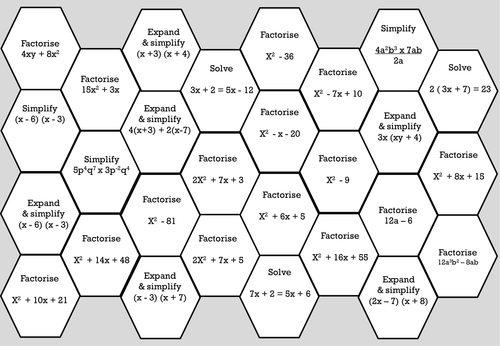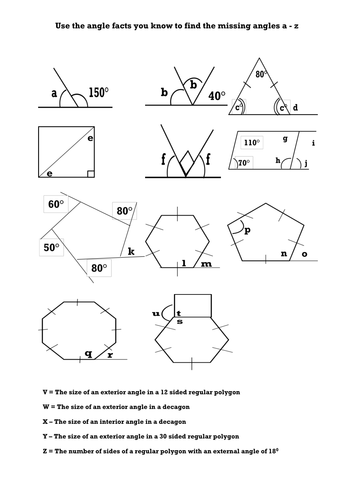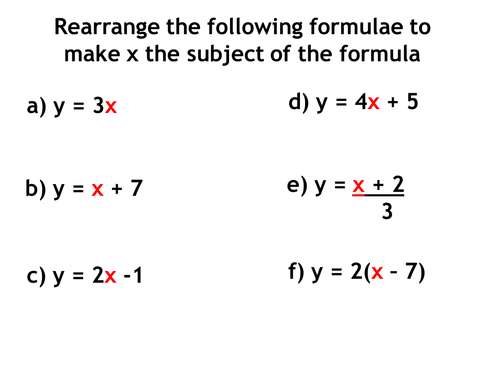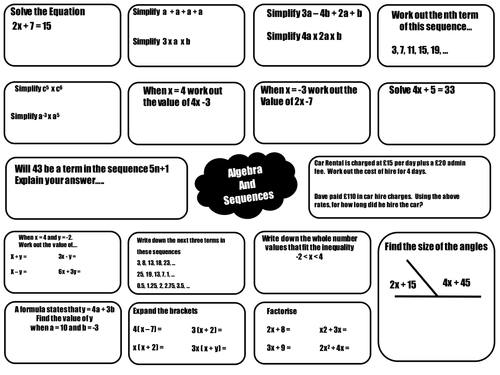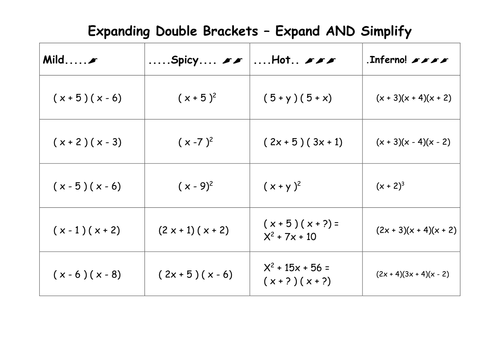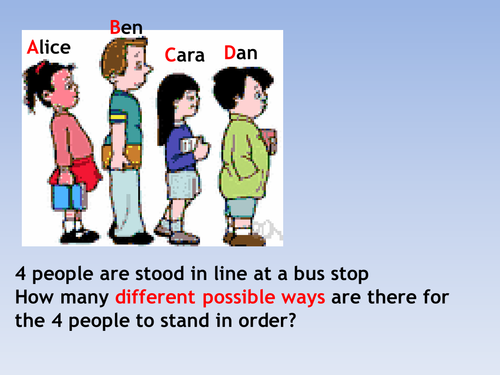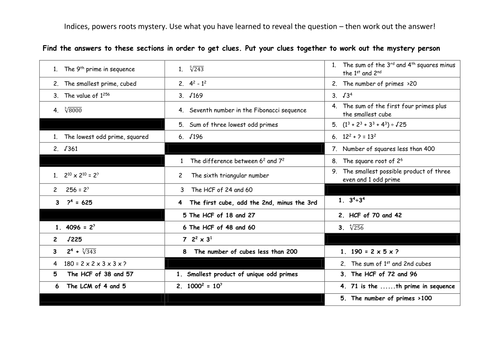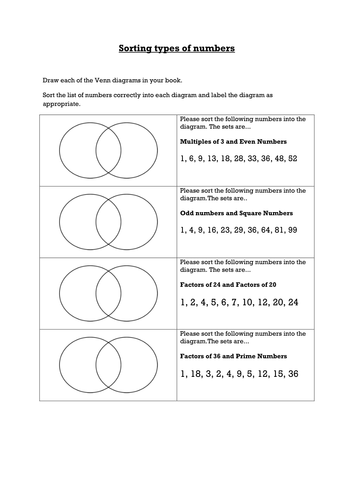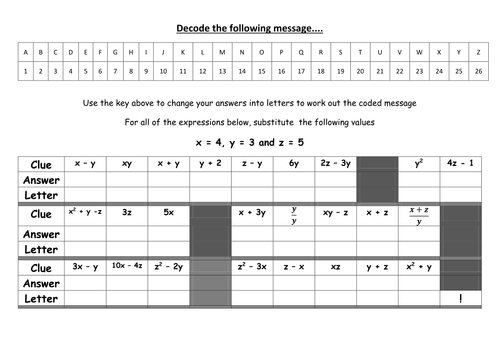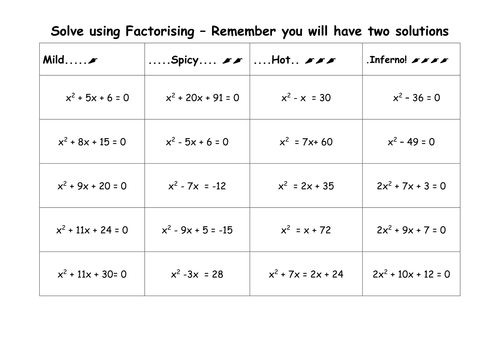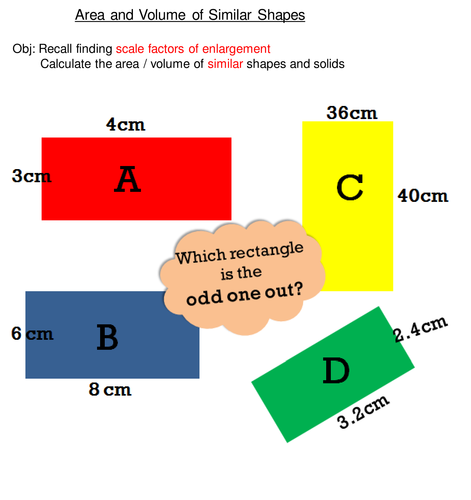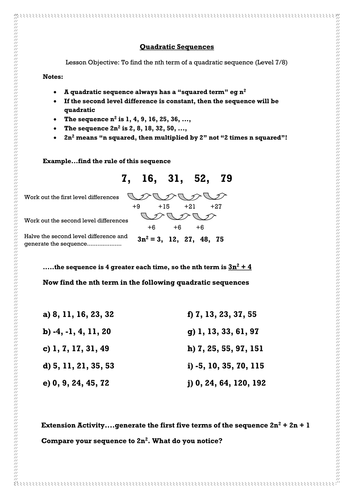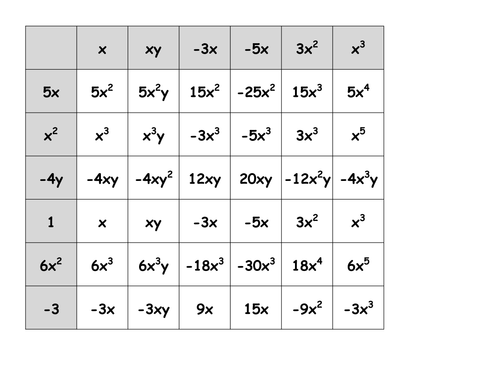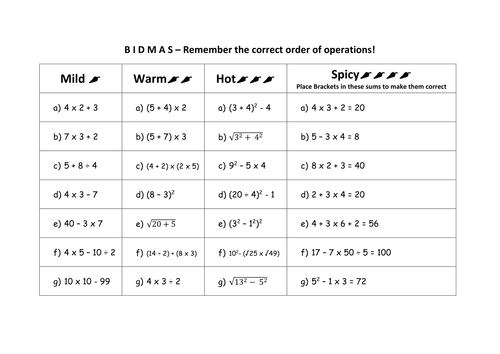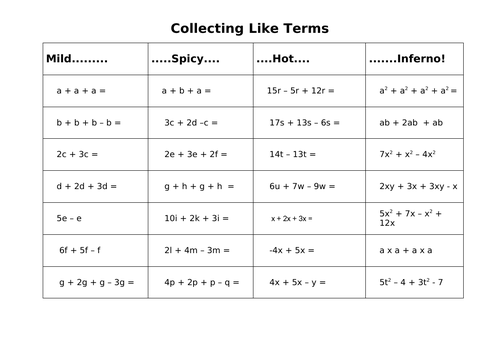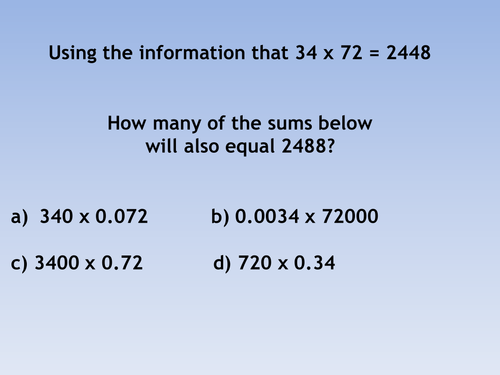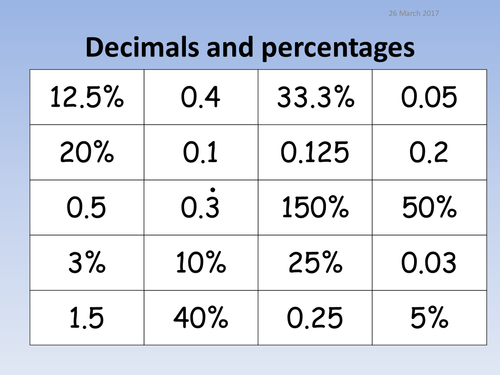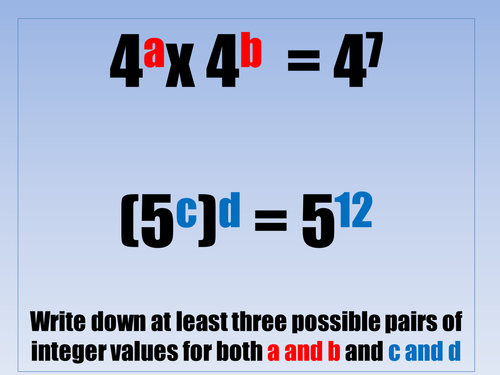
87Uploads
416k+Views
417k+Downloads
All resources

Algebra Blockbusters
Set pairs (or two students and a singleton!) against each other to work their way across this Algebra revision board in the style of blockbusters. Can be laminated and written on or give students two alternate coloured highlighter pens, which gives you a visible guide as to their progress.

Missing Interior and Exterior angles in Polygons
A two lesson set of notebook files covering finding the exterior and interior angles of regular polygons

Rearranging Formulae Revision
A straightforward powerpoint to take students through the basics of rearranging formulae. The lesson starter involves solving equations to get students into the frame of mind to consider inverse operations. The powerpoint also includes some exam questions including more difficult examples where the subject appears twice. Some students might require some reminders on factorising and expanding within the lesson too.

Revision Sheets - Algebra, Number, Fractions/Decimals
Three examples of a sheet that I enlarge to A3 to give students general purpose revision on these topics. Most suitable for a lower ability GCSE or any KS3 maths class. The templates can be changed for any topic once youve used them.

Probability Trees
Suitable for KS4 or able KS3 student this is an introduction to probability, with a discussionon the probability scale, through the basics of Tree usage, right upto using a tree for "without replacement" questions. There are opportunities for discussion and extension within the worksheet materials

Expanding and Simplifying Expressions
A differentiated New Style GCSE lesson on expanding and simplifying expressions, with some work on expanding three binomials.

Probability Trees Revision
A revision PowerPoint designed for KS4 students. The starter concerns the product rule which is now included in the 9-1 scheme. The lesson progresses through basic completion of trees to wordy "without replacement" style questions. A simple plenary to draw out a misconception and to reinforce multiplication of independent events.

Codebreaker Activity - Factors, Multiples, Squares, Primes
An exercise designed to recap or revise all areas of number work that involves HCF, LCM, Powers, Roots etc suitable for GCSE or KS3 students. I use this as an end of unit assessment and either make A3 sheets to share or individually as a homework. The answers will spell a question that then needs to be answered and can be modelled at the end of the lesson as a plenary. A simple extension task is to ask students to test each other and make their own codes - I have also set this for homework in the past.

Factors, Multiples, Primes into Venn Diagrams
A lesson to remind students how to classify types of number ideal for Ks3 or Ks4 Foundation GCSE.
See my Free "Bingo" resource for an ideal starter or plenary depending on the group.
The worksheets allows students to do a bit of fun shading, and likewise also introduces Venn Diagrams which have been added into the GCSE curriculum.

Codebreaker - Algebraic Substitution
Suitable for a lesson activity or homework for a Foundation GCSE or KS3 teaching group. Students find the values, convert to letters and an easy progress check can be made by asking the students what it spells!

Solving Quadratics By Factorising
A straightforward lesson on this essential skill with a differentiated worksheet, with a few non-monic equations, and some equations that need to be rearranged into the correct form first.

Area and Volume of Similar Shapes
A complete lesson worksheet and starter activity for students to discover the link between length scale factor and the area/volume of similar shapes and/or solids. Could be split into Area for one lesson and then volume for the second.

Generating Quadratic Sequences - Investigation
A lesson to introduce Quadratic sequences as part of the new 9-1 GCSE Content. I approach this topic by getting the students to generate n squared, 2n squared etc and find the second level difference for themselves rather than demonstrating this from the outset.

Pythagoras Investigation
An investigative lesson where students can "discover" Pythagoras' theorem. Note - you will need to give each group of students a large number of accurately cut squares eg 6 x 6, 9 x 9 which I have not supplied. With prompting students should be able to establish and generalise not only that when the three squares form a right angled triangle, then when they dont form a right angle what this means with regards to the opposite angle!

Product of Three Binomials - New GCSE
A Note book file and starter to introduce students to this new skill which is part of the new Spec GCSE

BIDMAS / Order of Operations
Differentiated lesson to establish the correct order of operations. Students can usually start anywhere on the first three columns, then brackets will need some explaining! Plenary of target number gives students the ability to be as easy or as complicated as they can with the "Target Number" sum to demonstrate learning

Collecting Like Terms - Differentiated Lesson
A fully differentiated lesson on powerpoint and Word with notes to teach this topic from the ground up.
Fun element of aligning algebra to the McDonald’s drive through and why we make terms simpler.
Suitable for Year 6 upto GCSE foundation. With a misconception busting plenary.

Currency Exchange GCSE Questions Revision
A lesson focussed on answering these common questions, with some reverse rate questions thrown in to keep things interesting!

GCSE Reverse / Compound Percentages Revision
A revision powerpoint for the two main ways in which percentage understanding tends to be assessed at GCSE - reverse percentages, and repeated percentage change. This could also be split into two lessons if time is not an issue. Two methods of finding reverse percentages are inlcluded, along with an activity to get students thinking about the decimal multiplier effect.

Surds - Revision Powerpoint
A powerpoint (with an initial starter involving indices) that covers why we use surds, simplifying surds, multiplying and rationalising. I have been using this with Year 11 intervention groups. There are also some example exam style questions and problem solving tasks. You may need some additional work to turn this into even a two or three lesson block.

